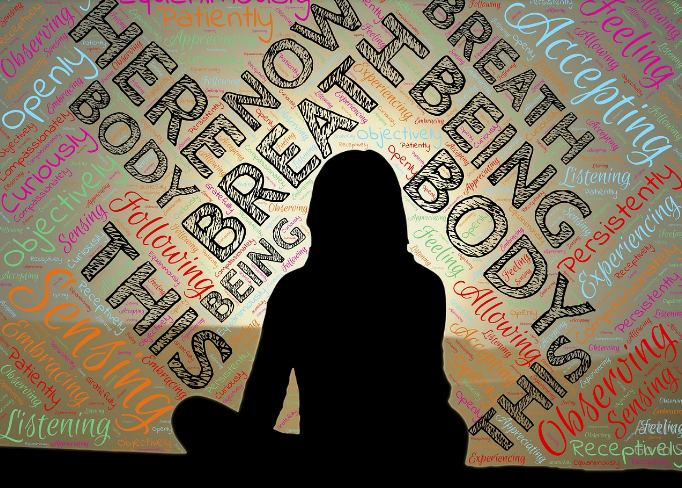
It might be difficult to stay productive in the fast-paced world of today. This blog offers you 10 mindfulness methods to boost your productivity. Learn how adding mindfulness to your everyday routine can improve your concentration, productivity, and general wellbeing. Learn useful tips and tricks to help you stay focused, control distractions, and accomplish your objectives more quickly. Unleash the potential of mindfulness to live a more fruitful and joyful life.
Table of Contents
Mindfulness
Mindfulness is the conscious practise of focusing your attention on the present moment and accepting it without judgement. The ability to be fully present in the moment, aware of where you are and what you are doing, and to resist getting overly emotional or distracted by what is going on around you is a fundamental quality of being human. Every human being possesses it; all you need to do is learn how to use it. You don’t need to bring it up.
According to some experts, mindfulness can also help people embrace their life experiences rather than responding to them by resisting or evading them. More and more often, psychotherapy includes mindfulness meditation, especially cognitive behavioural therapy. Given both meditation and cognitive behavioural therapy attempt to assist patients acquire insight into irrational, dysfunctional, and self-destructive thinking, this trend makes sense.

Whilst you practise mindfulness, your awareness switches over in three distinct ways:
1. First, your attention must be held on purpose
Mindfulness entails directing your attention mindfully and purposefully. When you’re in autopilot mode (completing tasks with a blank mind, do not realise or recall what you were doing for the past few moments), your attention is swept up by a never-ending torrent of thought processes that aren’t always positive. However, when you’re attentive, you feel refreshed and walk out of that stream, directing your focus wherever you want. When you concentrate attentively on this approach, you will live more deliberately, awakened, and perhaps more genuinely yourself.
2. Your focus needs to be directed entirely to the present situation
Habitually, when left to its own, your mind will naturally stray from the current moment. It gets continuously caught up in reliving past events and dreaming about the future. You are rarely wholly present in the current moment. Mindful attention is entirely immersed in the current moment of experiencing. It applies the philosophy “right now, right here.” It would be best to let go of the stress generated by wishing circumstances to be different, always desiring for more, and instead embracing the present moment.
3. Your attention should be retained objectively
It would be best to try not to control, repress, or halt your thoughts while practising mindfulness. However, pay attention to them instead of criticising or labelling your experiences as they happen. Therefore, mindfulness helped you to become an observer of your sensory impressions, thoughts, and emotions as they occur rather than getting wrapped up in them and carried away in their tide. You are far less prone to reflexively replay old compulsive patterns of thinking and living if you become the spectator in this way. It gives you fresh versatility and options in your life.
Mindfulness Tips To Enhance Productivity
Mindfulness is to help you become more aware of the ins and outs of your mental, emotional, and physical activities. Being mindful emerges whenever you raise awareness of what you are personally experiencing through your senses or your psychological state through your thoughts and feelings. It’s a delicate balance of vigilance and restraint.
Basic Mindfulness Meditation
Calm down and concentrate on breathing, or silently utter words that help you refocus. Allow your thoughts to come and go without judging them, then restore your attention to your breath or the mantra.
Go With Flow
It would be best to bridge the gap between the activity’s difficulty and your skill sets. To stay comfortable and concentrated, define your target, avoid pitfalls, take deep breaths, and keep your thoughts receptive.
Take A Break
One of the simplest ways of practising mindfulness at work is to do this. Take a little break from your workstation. You can invite a coworker to join you on a walk or a coffee break. Discuss things outside of your work, as the goal is to free your thoughts or concerns and enjoy a discussion with coworkers. It would be even better if you could walk outside the office. The power of enjoying the outdoors is incomparable.
Emotional Intelligence, Mindfulness & Empathy
Emotional Intelligence, Mindfulness & Empathy
Evade Back To Back Conferences
Nothing is worse than going from one meeting to another. And if you do it the whole day, without time to absorb or prepare for the next meeting, it can be highly exhausting. You may feel like you’ve done nothing while being active most of the day. This is not a practical approach to arranging your daily schedule. If possible, try to hold meetings or conferences in such a way that there is considerable breathing space for you.
Prioritise Your Tasks And Projects
Take a few moments to reflect on what you’ve completed and what remains. Organise your to-do list using the following three criteria: priority, focus level expected, and length of time for each activity. Numerous individuals are most productive in the morning, so begin your day with the most critical and time-consuming duties. Then, focus on medium-priority tasks, leaving your most minor demanding responsibilities for the last. You’ll be able to achieve more each day and be sure that you’ll always get the essential things done.
Focus On One Task At A Aime
Many people see the ability to multitask as competence in today’s era, if not a prerequisite. However, multitasking is a misconception; humans cannot focus on many workloads. What you’re genuinely doing is task swapping, which is when you complete different things in a short period. Task switching appears efficient from the outside but is very disruptive, time-consuming, and messy. Task switching has been shown in studies to cost up to 40% of a person’s productive time. Rather than juggling many tasks simultaneously, focus on one at a time. Only mark one action item as “Now,” then go on to the next one when you’re done.
Create Distraction-Free Environment
It is scientifically proven that your work productivity will increase significantly if you avoid using social media and turn off notifications on your devices while working. You will tend to attend more of your assigned tasks without getting distracted. Though it will be difficult, this shift will dramatically impact your effectiveness. You can use earplugs for noise reduction around you or listen to calming music to help you work with complete focus.
Get A Grip On Your Emotions
You might get startled after getting an upsetting phone call from someone and still have a lot of work to do, but you’re finding it difficult to focus on it. Give yourself a break and try to write down all about your feelings. You might be unable to handle what’s happening in your mind, so battling them is pointless and draining. Being more conscious of your own emotions as they occur might assist you to be more adaptable and thrive despite such adversity.
Use Metacognitive Strategies
Analysing your thinking process or the awareness of your learning can be considered metacognition. It is “thinking about thinking” or “learning about learning.” Rather than just operating mindlessly, you focus on planning, monitoring, and evaluating your work and learning experiences. Roam Research is one of the most effective techniques for improving metacognitive awareness.
Building A Convenient Space
Personalise your cubicle and desk with your most memorable photos, or add lighting with comforting shade to mask the harsh fluorescents above. Incorporating personal and soothing elements into your workstation will make you feel more bonded to your surroundings.
Workplace mindfulness will keep you serene and cope stronger, increasing your productivity and helping you achieve better outcomes. You can consider them as the pillars of mindfulness.
Mindfulness In The Workplace
Practising mindfulness in the workplace is one of the most influential and important things anyone can do. Mindfulness and productivity may be diametrically antithetical. Many people argue that you do mindfulness beyond work, at a specific time and place. Meditation and practising yoga are excellent strategies to foster consciousness, but they aren’t the only strategies to keep in touch with your emotions, thoughts, and the environment surrounding you. Becoming mindful involves pausing our daily autopilot mode, enjoying the small stuff, and monitoring your mental activities.
Mindfulness could help with critical thinking by increasing attention, generating more insights, and boosting receptivity to fresh concepts. Creative thinking is required for solving problems and inventiveness. Without creativity, hardly any unique goods or services can be invented, and no procedures can be upgraded. There is research that shows there is a correlation between both mindfulness and creativity. People with more control over their emotions tend to be less stressed or anxious and more resourceful.

Positive Effects Of Mindfulness
Practising mindfulness can alleviate physical and psychological ailments as well as wellbeing, perspectives, and behaviours.
Promotes one's overall wellbeing
Many characteristics that lead to a satisfying existence can be aided by boosting your mindfulness capability. Becoming attentive makes it simpler to taste life's joys as they happen, get completely involved, and cope with negative situations. Many individuals who practise mindfulness find that by focusing on the present instant, they are less prone to be obsessed with concerns regarding the future or remorse over the past and are more successful in building bonds with others.
Ameliorates mental health
Mindfulness has been shown to benefit mental wellness. In the modern era, meditation has been a key factor in treating a number of diseases, including depression, drug abuse, eating disorders, the conflict between spouses, disorders of anxiety and OCD.
Enhances physical wellness
If improved mental health isn't enough of a motivator, scientists have revealed that mindfulness practices can aid with physical health in a greater range of ways. Mindfulness can help relieve stress, the treatment of heart disease, the reduction of chronic pain, the improvement of sleep, and relief of gastrointestinal problems.
For further in-depth knowledge, you can participate in this spectacular Mindfulness in the Workplace training.
Conclusion
In conclusion, integrating mindfulness practices into your life can profoundly impact your productivity. By cultivating present-moment awareness and implementing the tips provided in this blog, you can enhance your focus, reduce stress, and maximise your efficiency. Remember to be patient with yourself as you develop these new habits and allow mindfulness to become a natural part of your daily routine. Embrace the power of mindfulness and witness the positive transformation it brings to your productivity and overall well-being.
FAQ
1. How long does it take to see the benefits of mindfulness on productivity?
The time it takes to experience the benefits of mindfulness can vary for each individual. With consistent practice, you may start noticing positive changes in focus and productivity within a few weeks.
2. Can mindfulness help with multitasking?
Yes, practising mindfulness can improve your ability to multitask effectively. You can enhance your concentration and efficiency by being fully present and focused on one task at a time.
3. How often should I practice mindfulness for optimal productivity?
Ideally, incorporating mindfulness into your daily routine is recommended. Starting with a few minutes each day and gradually increasing the duration can yield significant benefits.
4. Can mindfulness help reduce workplace stress?
Absolutely. Mindfulness techniques such as deep breathing, meditation, and body scans can help alleviate workplace stress by promoting relaxation, mental clarity, and emotional resilience.
5. Is it possible to practice mindfulness at work?
Yes, mindfulness can be practised anywhere, including the workplace. Simple techniques like mindful breathing or short mindful breaks can be easily incorporated into your workday.
6. Can mindfulness improve creativity and problem-solving skills?
Yes, mindfulness can enhance creativity and problem-solving abilities. By cultivating a clear and focused mind, you can tap into your creative potential and approach problem-solving with a fresh perspective.
7. Are there any mindfulness apps or resources available
Yes, several mindfulness apps and resources are available to support your practice. Some popular options include Headspace, Calm, and Insight Timer, which offer guided meditations and mindfulness exercises.
8. Can mindfulness help with work-life balance?
Practising mindfulness can help you create a healthier work-life balance. Being fully present in the moment can reduce stress, improve focus, and cultivate a greater sense of overall well-being.
9. What if I find staying consistent with mindfulness practice challenging?
It’s normal to face challenges when establishing a new habit. Start with small, achievable goals and be compassionate with yourself. Find what works best for you, whether scheduling reminders, joining a mindfulness group, or using guided meditation apps.
10. Can mindfulness improve overall well-being beyond productivity?
Yes, mindfulness has numerous benefits beyond productivity. It can improve mental and emotional well-being, enhance relationships, reduce anxiety and depression, and promote happiness and fulfilment.





0 responses on "10 Mindfulness Tips to Increase Productivity"